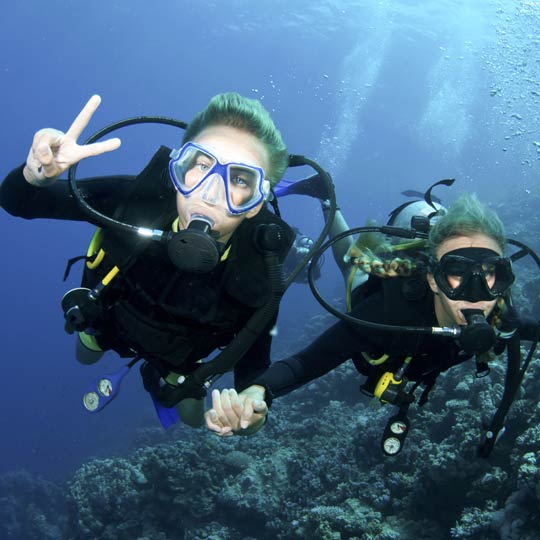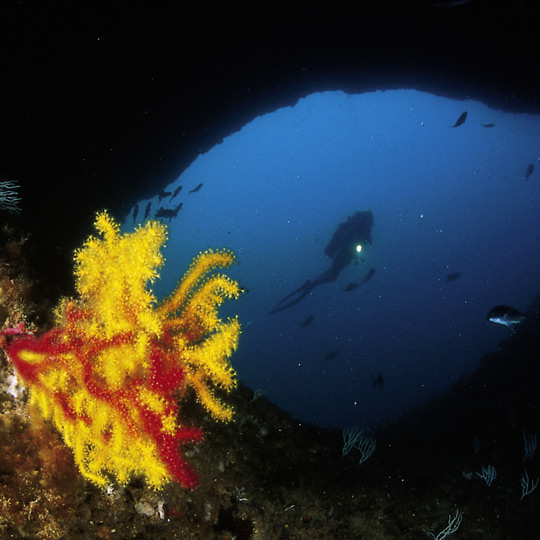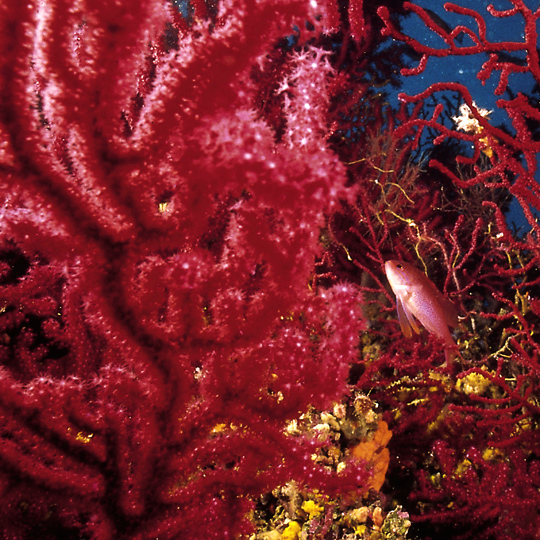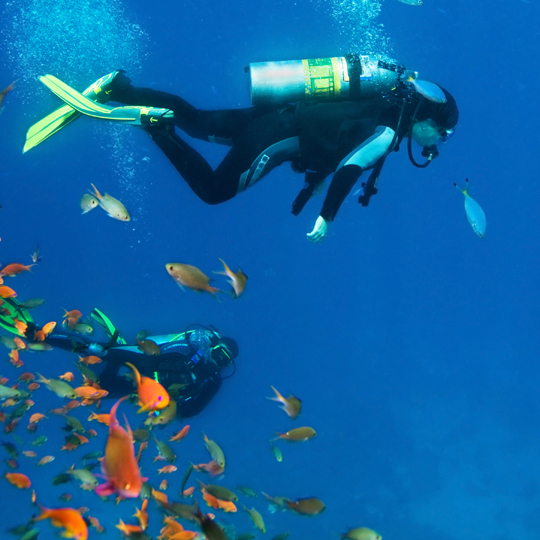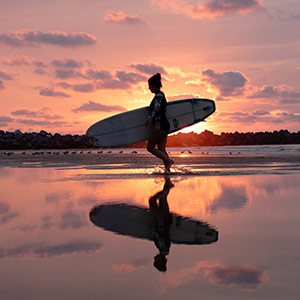WHY SPAIN
Located in southern Europe, Spain is almost wholly surrounded by water: Its coasts are bathed by the Mediterranean (with warmer waters), the Cantabrian Sea and the Atlantic Ocean (colder) – and all of them are really clear.The pleasant climate lets you swim and dive all year round.Plus, it has more than ten Marine Reserves.There are many diving centres that organise diving courses for different levels and specialities, and also take care of getting permits and boat transfers to the coast.And diving clubs organise activities such as underwater archeology seminars, underwater photography, among others.You can also practice other water sports or take an excursion to see cetaceans.
